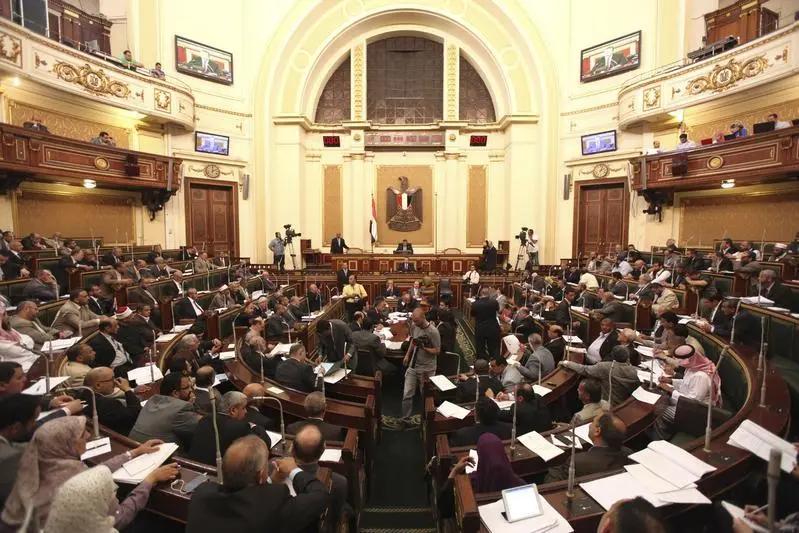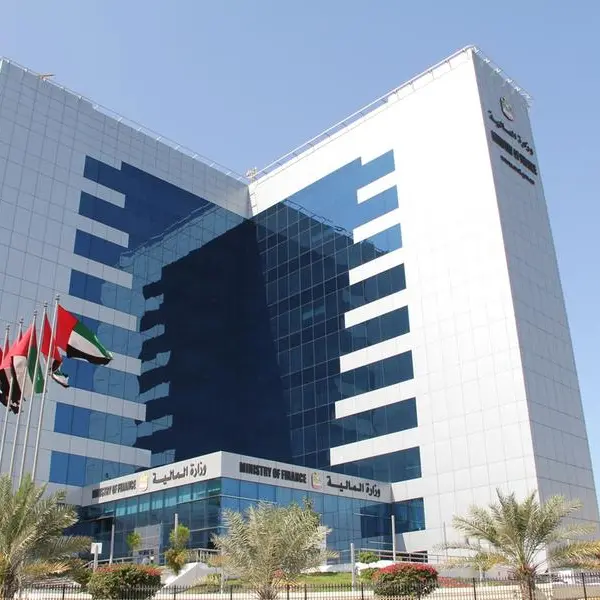PHOTO
* Long-awaited tax law key part of economic reform plan
* Some lawmakers fear tax will stoke inflation
* Egypt agreed $12 bln IMF loan, $3 bln from World Bank
(Adds details, quote, background, and bullet points)
By Eric Knecht and Ahmed Aboulenein
CAIRO, Aug 29 (Reuters) - Egypt's parliament approved on Monday a long-awaited law introducing a value-added tax of 13 percent, rising to 14 percent in the next fiscal year, a key part of the government's plan to reform the economy and cut its deficit.
Parliament had been debating the law for weeks, with dozens of lawmakers opposing the government's initial proposal of 14 percent, for fear of stoking inflation in a country where tens of millions live one pay check away from hunger. The house budget committee had pushed to reduce the rate to 12 percent.
The deadlock was broken on Sunday when Finance Minister Amr El Garhy proposed a compromise of 13 percent for the 2016-17 fiscal year.
"The law was passed and got final approval. It will be 13 percent for this year, and at the start of the next financial year will be 14 percent," Yasser Omar, an MP on the house budget committee, told Reuters.
"It's a tax reform that Egypt needed to begin its economic reform process. This is the start of an economic reform programme that will see Egypt have a stronger tax regime that will make the economic system stronger, and will allow it to draw foreign investment."
The VAT law is part of a reform programme that formed the basis of a $12 billion, three-year loan agreed with the International Monetary Fund earlier this month.
The IMF deal has yet to be approved by its executive board, but the IMF mission chief for Egypt, Chris Jarvis, has told Reuters previously that disbursement of the first instalment was not contingent on passage of the VAT law.
Egypt also agreed a $3 billion, three-year loan programme with the World Bank in December, but the first tranche has been delayed pending parliamentary approval of measures including VAT.
PROTECTING THE POOR
Economists welcomed the news, which they said showed the government continue with politically sensitive reforms that could spark unrest in a country that has seen street protests unseat two presidents since 2011.
"It's positive for revenue generation and the budget deficit. This shows government commitment to reforms," said Reham ElDesoki, senior economist at Arqaam Capital.
"They are going ahead with one of the difficult reforms that has been pending for a decade and should be followed by the other reforms, such as a devaluation and other fiscal reforms."
VAT will replace the current sales tax, which economists say creates market distortions. It is expected to broaden the tax base in a country where the government struggles to collect income tax because of a large informal economy and widespread avoidance.
During the debate, parliament strengthened the punishment for tax evasion from the government's original proposal, to include three to five year prison sentences and higher fines.
The VAT law exempts basic goods and services to protect the poor, who would not be harmed by the law, Parliament Speaker Ali Abdelaal told lawmakers at the end of the session.
"The wheel of economic reform is moving strongly and those who wish to hinder it need to reconsider their positions. We defend low-income people," he said.
Egypt's economy has been struggling since an uprising in 2011 ushered in political instability that drove away tourists and foreign investors, major sources of foreign currency.
The turmoil has seen foreign reserves more than halve from some $36 billion before the uprising to some $15.5 billion in July.
(Additional reporting by Asma Al Sharif and Mohamed el Sherif; Editing by Lin Noueihed and Ralph Boulton) ((ahmed.aboulenein@thomsonreuters.com; +20 2 2394 8097; Reuters Messaging: ahmed.aboulenein.thomsonreuters.com@reuters.net))
* Some lawmakers fear tax will stoke inflation
* Egypt agreed $12 bln IMF loan, $3 bln from World Bank
(Adds details, quote, background, and bullet points)
By Eric Knecht and Ahmed Aboulenein
CAIRO, Aug 29 (Reuters) - Egypt's parliament approved on Monday a long-awaited law introducing a value-added tax of 13 percent, rising to 14 percent in the next fiscal year, a key part of the government's plan to reform the economy and cut its deficit.
Parliament had been debating the law for weeks, with dozens of lawmakers opposing the government's initial proposal of 14 percent, for fear of stoking inflation in a country where tens of millions live one pay check away from hunger. The house budget committee had pushed to reduce the rate to 12 percent.
The deadlock was broken on Sunday when Finance Minister Amr El Garhy proposed a compromise of 13 percent for the 2016-17 fiscal year.
"The law was passed and got final approval. It will be 13 percent for this year, and at the start of the next financial year will be 14 percent," Yasser Omar, an MP on the house budget committee, told Reuters.
"It's a tax reform that Egypt needed to begin its economic reform process. This is the start of an economic reform programme that will see Egypt have a stronger tax regime that will make the economic system stronger, and will allow it to draw foreign investment."
The VAT law is part of a reform programme that formed the basis of a $12 billion, three-year loan agreed with the International Monetary Fund earlier this month.
The IMF deal has yet to be approved by its executive board, but the IMF mission chief for Egypt, Chris Jarvis, has told Reuters previously that disbursement of the first instalment was not contingent on passage of the VAT law.
Egypt also agreed a $3 billion, three-year loan programme with the World Bank in December, but the first tranche has been delayed pending parliamentary approval of measures including VAT.
PROTECTING THE POOR
Economists welcomed the news, which they said showed the government continue with politically sensitive reforms that could spark unrest in a country that has seen street protests unseat two presidents since 2011.
"It's positive for revenue generation and the budget deficit. This shows government commitment to reforms," said Reham ElDesoki, senior economist at Arqaam Capital.
"They are going ahead with one of the difficult reforms that has been pending for a decade and should be followed by the other reforms, such as a devaluation and other fiscal reforms."
VAT will replace the current sales tax, which economists say creates market distortions. It is expected to broaden the tax base in a country where the government struggles to collect income tax because of a large informal economy and widespread avoidance.
During the debate, parliament strengthened the punishment for tax evasion from the government's original proposal, to include three to five year prison sentences and higher fines.
The VAT law exempts basic goods and services to protect the poor, who would not be harmed by the law, Parliament Speaker Ali Abdelaal told lawmakers at the end of the session.
"The wheel of economic reform is moving strongly and those who wish to hinder it need to reconsider their positions. We defend low-income people," he said.
Egypt's economy has been struggling since an uprising in 2011 ushered in political instability that drove away tourists and foreign investors, major sources of foreign currency.
The turmoil has seen foreign reserves more than halve from some $36 billion before the uprising to some $15.5 billion in July.
(Additional reporting by Asma Al Sharif and Mohamed el Sherif; Editing by Lin Noueihed and Ralph Boulton) ((ahmed.aboulenein@thomsonreuters.com; +20 2 2394 8097; Reuters Messaging: ahmed.aboulenein.thomsonreuters.com@reuters.net))





















